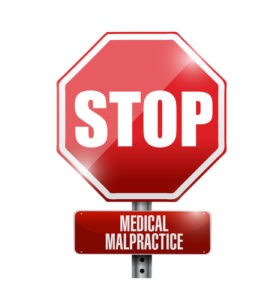 If you or a loved one suffered an overdose from medical negligence, you may be entitled to compensation.
If you or a loved one suffered an overdose from medical negligence, you may be entitled to compensation.
If a medical professional or facility caused an overdose, this could be an act of medical negligence. A hospital, doctor, or any other healthcare professional who causes injury to a patient through negligence or omission is considered medical malpractice. This negligence might be an error in diagnosis, treatment, aftercare, or health management.
Taking more than the normal or recommended amount is an overdose. An overdose can be deliberate or accidental. Please note that medical negligence could lead to an overdose of any drug, but the primary focus of this webpage is opioid overdoses.
How Medical Negligence Could Lead to an Overdose
Doctors and other healthcare providers must explain the risks of taking opioids. Although opioids can be an effective part of a pain management program, some healthcare providers are careless in prescribing and checking their patients.
Victims and Family Legal Rights
Patients who suffer an overdose from medical negligence might be entitled to compensation for damages such as medical bills and mental anguish. If the patient passed away from an overdose, it is possible that surviving family members can file a wrongful death claim or lawsuit.
Survivors of an overdose or family members should know their legal rights. A medical malpractice lawyer who accepts opioid overdose cases can provide this information.
Medical Negligence Factors in Opioid Abuse and Overdose
Opioids are extremely addictive. Doctors and other medical providers must be prudent in prescribing them to patients. They must regularly check patients who take opioids for an extended period to make sure patients are not abusing or misusing their medicine.
The Centers for Disease Control and Prevention (CDC) warns that anyone could become addicted to opioid and subsequently overdose. Certain groups of people are at higher risk, including patients who are:
- Age 65 and older
- Have medical conditions such as sleep apnea, and impaired kidney or liver functions
- Are inconsistent with dosage
- Combine opioids with alcohol and other drugs
Any patient who takes opioids is at risk for overdose in certain situations. These include:
- Prescription too potent for their age and health
- Incorrectly filled by a pharmacist
- Inappropriate medication for a condition
- Inaccurate doses from hospital or facility staff
Prescription Opioid Abuse Is a National Crisis
According to the National Institute on Drug Abuse (NIDA), more than 130 Americans overdose on opioids every day. In 2017, the NIDA reported 47,000 deaths from this highly addictive painkiller. The U.S. Department of Health and Human Services estimates that 40 percent of opioid overdose deaths are from prescription opioids. These includeOxyContin®and Vicodin®.
Free Consultation
If you or a loved one experienced an opioid overdose due to medical negligence, please call Newsome | Melton at 888-526-8947 for a free consultation.
Overdose - Frequently Asked Questions

“Informed consent” in relation to medical malpractice means doctors must tell patients about the risks of a medical procedure. For instance, if a patient is undergoing surgery to correct their eyesight, the doctor must discuss the potential complications of such a procedure with the patient beforehand. If the doctor fails to get informed consent and
Read More
There is a statute of limitations on medical malpractice cases in Florida. According to F.S. §95.11(4)(b), victims must file a lawsuit within two years from the time of the malpractice incident—or two years from the time the incident was discovered. To speak with a medical malpractice lawyer in Florida about the statute of limitations in your
Read MoreOverdose - News Articles

Kathy Arient, then 58, sought out medical attention in October 2012, complaining of severe stomach pains. She was referred to Dr. Yasser Alhaj-Hussein, who worked at the Orland Park Surgical Center in Illinois. According to a medical malpractice lawsuit, filed on behalf of Arient’s family, during a celiac plexus block procedure, intended to help manage
Read More
South Florida Jury Finds Doctor Negligent in 2011 Medical Malpractice Lawsuit; Awards Plaintiff $16,922,000 On November 21, 2008, the pain in Stephanie Hollingsworth’s feet and hands became so acute that she went to the emergency room at Holy Cross Hospital, located in Fort Lauderdale, FL. Hollingsworth, then 26, believed that the pain was from an
Read More